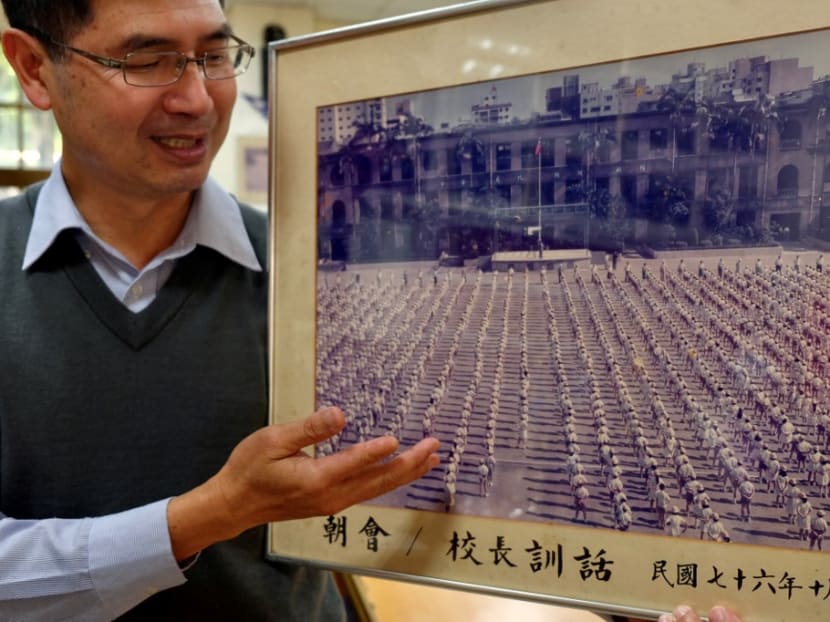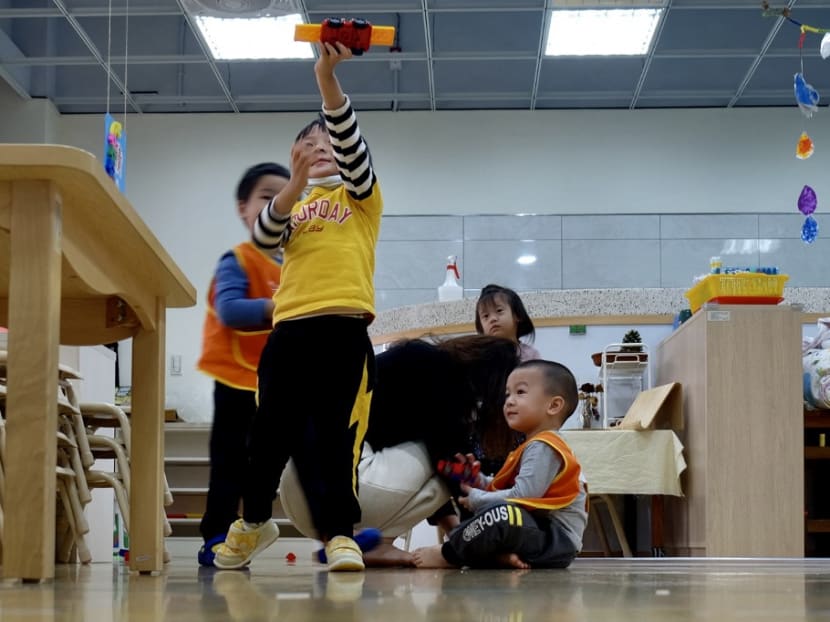Taiwan hurtles towards 'super-aged' status as birthrate plummets
TAIPEI — Dr Wu En-tzu has delivered more than 2,000 babies working as an obstetrician but she has no desire to have children of her own — an increasingly common position taken by Taiwanese families.
TAIPEI — Dr Wu En-tzu has delivered more than 2,000 babies working as an obstetrician but she has no desire to have children of her own — an increasingly common position taken by Taiwanese families.
Since they married 12 years ago, Dr Wu and her surgeon husband have been on the same page when it comes to kids.
"I just can't find one single reason that I must have a child," she told AFP at her office in an upscale clinic in Taipei.
"It's not just me. Now many young people think: 'Why do I have to get married and have babies? I don't necessarily have to follow the traditional family values'."
Few places have experienced quite as profound a demographic change as Taiwan.
In 1951, the average Taiwanese woman gave birth to seven children. Now it is less than one.
Last year the island recorded more deaths than births — a watershed moment that signals Taiwan's population officially contracted for the first time.
In the first quarter of this year, deaths outpaced births by 47,626 to 34,917.
It is an increasingly familiar story across East Asia. Japan has led the way, hitting that population decline milestone in 2007.
South Korea, Hong Kong and Taiwan also joined the club last year.
Government census data released earlier this month showed China's population is now growing at its slowest pace in decades.
Much of Asia faces a looming labour crisis with few families supplying the average 2.1 children needed for a population to replicate.
Millions are approaching retirement age with neither enough younger generations, or immigrants, to fill their shoes.
EMPTY CLASSROOMS
Laosong Elementary School in the capital Taipei illustrates this drastic decline.
It was once dubbed the world's most populous school with more than 11,000 students in 1966, according to principal Lin Ming-ju.
Back then, the 158 classes each had 80 pupils who had to take turns to use classrooms, go to the toilet and even leave school.
"In the past getting through the school's field was like playing dodgeball but now students can jump and run as much as they like," Mr Lin told AFP.
The current headcount is 500 with just 20 classes, each containing 25 pupils. Around 40 per cent come from one-child families, Mr Lin said.

"Women's growing self-awareness is a key reason," said Dr Wu, 37.
"Many women have master's or doctoral degrees now and they don't have to depend on men like in the past. They can choose to cultivate their careers," she added.
Government employee Pauline Fu, 38, says her family went from seven children to zero in just three generations.
Fu, who lives in southern Tainan city, said she and her husband of 11 years prefer the "freer lifestyle" of being childless.
"Our friends often complain about the worries and difficulties of parenting so we feel that a life of just the two of us is good enough."
'A RATIONAL CHOICE'
Another cause of low births is the sheer cost of living. Taiwan's industrialisation last century transformed the island into a regional economic powerhouse.
But in the last decade or so wages have stagnated as daily expenses continue to rise.
Sociologist Hung Hui-fen from Taipei's Soochow University says young couples at their prime childbearing suffer from "time and economic poverty", working long hours for low pay, forcing them to postpone or abandon having families.
Women in places like Taiwan, Japan and South Korea also face "very high opportunity cost", according to demographer Stuart Gietel-Basten at Hong Kong University of Science and Technology.
"The impact on women's careers is clear and this is especially the case because the burden of care is not usually shared."
In East Asia's patriarchal cultures, women remain primary caretakers for children, parents and in-laws even if they have full-time jobs.
Authorities have been upping incentives — from childcare stipends to tax deductions and infertility treatments.
But activists say gender inequality remains unresolved and must be tackled.
"As gender discrimination is common in society, it becomes a rational choice for many women not to have any child," said Ms Chyn Yu-rung, secretary-general of women's rights group Awakening Foundation.
Unless there is a radical change, Taiwan is projected to become a "super-aged society" by 2025 with one in every five citizens aged over 65.
"In the next decade, there will be universities closing every year," predicts Associate Professor Hung, the sociologist.
"I think Taiwan may have already passed the point to turn around the population decline. What we can do now is to tackle the causes of low birth rate to try to ease the fall," she added. AFP










